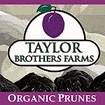Organic Corn Yields Surpass Conventional,
Research From 27-Years Study Shows
KUTZTOWN,
PA (April 12, 2007), Fresh analysis
dispels the myth that yields from organic
fields are always lower than yields from
conventional production.
Data from The Rodale Institute's 27-year
Farming Systems Trial (FST) has shown
that over time, corn yields from organically
managed fields can equal and even surpass
yields from conventionally farmed fields.
Organic practices also improve soil quality
and result in fewer greenhouse gases in
the air and less pollutants in the water.
The 13-acre FST began in 1981, making
it the United States, longest-running
scientifically controlled comparison of
organic and conventional crop production
systems. During the first few years of
the FST, while the organically farmed
plots were going through the transition
process and building up biological activity
in the soil, yields from conventional
cornfields were superior. But the organic
plots soon entered a long phase, from
1985 until 1993, when their yields averaged
out to equal those of the conventionally
farmed plots.
From 1995 to 2006, corn yields from organic
plots averaged out to surpass the conventional
plots; this period included both severe
drought years and a record wet summer.
During the drought years, organic corn
yields were 28 to 34 percent higher. During
the rainy summer of 2004, organic yields
were 13 percent higher and contained 15
percent more protein than corn grown in
the conventional plots.
These increased yields are the end result
of more than two decades of continuous
soil improvements through organic farming
techniques. Tests show that from 1981
to today, soil quality has greatly increased
in the plots under organic management,
but has not increased in the conventional
plots. The organic soil now contains 30
percent more carbon, 15 percent more total
nitrogen and 225 percent more biological
activity than it did at the beginning
of the FST project.
"This transformation of the organic
fields is like the race of the tortoise
and the hare," says Dr. Paul Hepperly,
The Rodale Institute's research and training
manager. "Our research has shown
that the organic systems are now pulling
ahead on four fronts: namely, soil quality,
drought tolerance, crop quality and overall
yield. While it takes time to change worn-out
soil into rich, healthy soil, it is well
worth the effort and wait."
The Rodale Institute's long-term commitment
to research has demonstrated that agricultural
chemical fertilizers and pesticides are
not prerequisites for high, consistent
field crop yields and quality. By patiently
improving base soil fertility, organic
farmers can make big changes. Over a period
of years they can achieve yields that
are competitive with conventional agriculture
while cutting costs and energy consumption.
Further, they can eliminate the negative
environmental impact of agri-chemicals
used in conventional food production.













